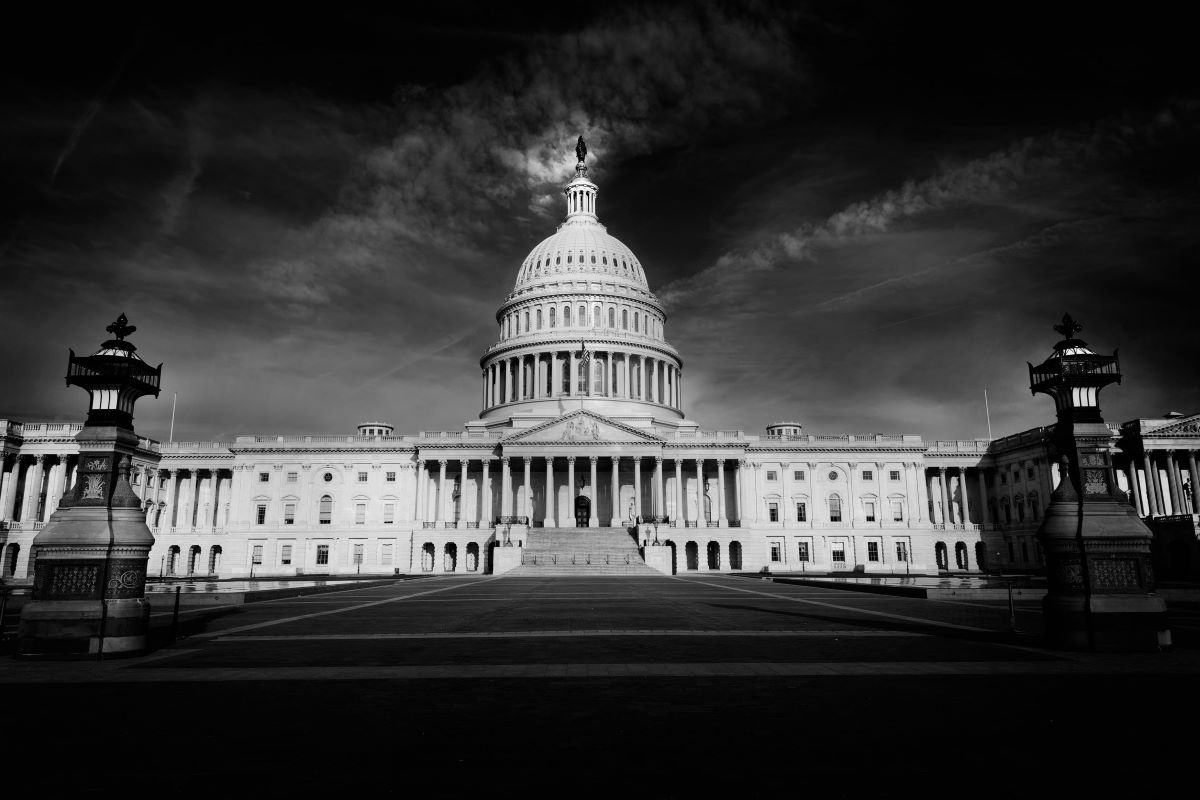What to say and do right now within your organization following the Capitol attack
Today is not the day to skirt around hard conversations. Have them. Make yourself available. Put employees first. Show them the heart of your organization.

What happens in the world outside of work often has a direct impact on what happens at work.
Politics, society and the economy frequently converge at work—sometimes leaving HR and communications leaders struggling with their own views and actions.
What should communicators and HR pros consider in light of such vile actions? What should they do?
Here’s what 21 HR, CEO and communication leaders advise:
Get to work, heroes
 In the wake of the largest threat to modern democracy, there is no greater need for HR to activate than today. 2020 taught us that silence is not an option, and we will collectively decide, as a profession, to make 2021 the year we believe politics are about people and therefore always worth wading into.
In the wake of the largest threat to modern democracy, there is no greater need for HR to activate than today. 2020 taught us that silence is not an option, and we will collectively decide, as a profession, to make 2021 the year we believe politics are about people and therefore always worth wading into.
It is crucial to communicate to all employees any mental health resources, including an EAP, as the trauma will be felt differently among your people. Encourage leadership to allow time off if needed and remind your workforce that you believe in people over profit. Productivity cannot be high when trauma is experienced, and it is your job to advocate for the mental health and psychological safety of your employees after widespread suffering.
Lastly, you must be the leader walking toward the pain and chaos of the American experience in your workplaces. Ignoring the horrors of white supremacy climbing the walls of the Capitol with small talk or business conversations can do irreparable damage to your culture. Acknowledge the painful truth plainly, put the good of people first by pressing forward with difficult conversations, and get to work. Listen deeply to your hurting Black employees and encourage other leadership to create the same safe spaces.
Hear me when I say this, HR professionals — you are equipped to manage today. It is your time to lead in crisis, listen deeply, and forge psychologically safe spaces for the people caught in the fire of politics. Get to work, heroes.
— Kayla Moncayo, HR firebreather and employee relations professional
Shut down the B.S.—always
 This is a disruptive event. Regardless of personal reactions, it’s important to acknowledge the impact of what happened. Leaders need to make space for people to talk to each other about it if they need to. They should also talk to their people and find out what they need.
This is a disruptive event. Regardless of personal reactions, it’s important to acknowledge the impact of what happened. Leaders need to make space for people to talk to each other about it if they need to. They should also talk to their people and find out what they need.
After 9/11, the owner of my small company kept the office open but allowed people to go home if they needed to, understanding that everyone reacts differently to events like this. Don’t automatically assume no one wants to work. But also, don’t automatically assume everyone is business as usual.
If needed, set some expectations about interactions with coworkers. It’s possible there are people you work with who support Trump or their local GOP representative, and it’s possible there are people who will take their fear and anger out on those supporters. It’s also possible those supporters will feel emboldened to start spouting conspiracy theories and go after more liberal coworkers. Make it clear neither scenario is OK. Safety first. Shut down the B.S. Always.
— Mary Faulkner, Principal, IA-HR, and ERE strategy and leadership columnist
Show employees some heart
 As HR leaders, we pride ourselves on being problem-solvers, ever-ready to step up to the plate and lead from our experience and expertise. But what your employees need—no, deserve—is not your voice but your heart.
As HR leaders, we pride ourselves on being problem-solvers, ever-ready to step up to the plate and lead from our experience and expertise. But what your employees need—no, deserve—is not your voice but your heart.
I was once told by a mentor of mine that “people don’t care how much you know until they know how much you care.” It’s with that mindset that I make the following recommendations for leading your people forward together:
Make yourself obviously available. While not that easy in a digital climate, it looks like making calls, sending Slacks, and hopping on Zoom just to say “hey.” Sometimes all people need to know is that someone was thinking of them.
Judge the upcoming days not by productivity but by chemistry. What I mean is, do your employees trust one another to be vulnerable and do they feel safe to be themselves? Companies that have embedded a strong sense of community and trust won’t have this problem today. If people feel like they’re on eggshells then you do not work for one of these companies.
Lift all heads above the clouds. We all recognize that the actions at the Capitol are to be condemned. But where we go from here is the more important piece of the conversation. Lead and encourage employees toward unity and community with one another even if there’s a potential clash of political views. To be an HR pro in America is to be respectful of different views, while also protecting our uniting values of life liberty, and the pursuit of justice for all. We have a new administration coming and a new opportunity to start fresh and be one nation. That’s something to be excited about.
— Joey Price, CEO, Jumpstart:HR
POC already know this America
 Leaders need to express their disappointment about these events and make it clear that they don’t condone this type of behavior because it undermines our democratic processes and reinforces supremacy.
Leaders need to express their disappointment about these events and make it clear that they don’t condone this type of behavior because it undermines our democratic processes and reinforces supremacy.
They should also discourage looking to Black and other POC in the organization to express their feelings about this. Instead, encourage whites to explore the history of violence by whites in response to government movement toward greater equality and equity during this time. This America is one that Black people and other POC have known for many years, and it negates our experiences to say otherwise, as well as expect us to be the first voices to speak our hurt when these issues happen.
— Sarah Morgan, founder and CEO of BuzzARooney, and corporate director of HR, Rosewood Family of Companies
Grieve the reality that is America
 If there were ever a day to check in on your Black and brown employees, today is that day. We are watching systemic racism unfold live on our TVs in the midst of seeing Jacob Blake’s shooter go free. We asked to be protected, to be allowed to exist without fear, but America didn’t feel as if we deserved that. Today we watched terrorists storm the Capitol building, without harm.
If there were ever a day to check in on your Black and brown employees, today is that day. We are watching systemic racism unfold live on our TVs in the midst of seeing Jacob Blake’s shooter go free. We asked to be protected, to be allowed to exist without fear, but America didn’t feel as if we deserved that. Today we watched terrorists storm the Capitol building, without harm.
Today is not the day to skirt around hard conversation, emotions or reality. Check in on your people. Give your people space to grieve the reality that is America. This is a preview of weeks to come. It is time we start speaking about it — because our Black and POC people have been living it for decades.
— Madison Butler, VP of talent, people and culture, Sourced Craft Cocktails
When leaders are unethical
 One of the perspectives we need to consider is the importance of having ethical leadership in our organizations. Today’s events are an extreme example of what can happen when we do not have leaders who live an ethical life. Any organization that cannot hold its leaders to a high ethical standard is destined to suffer in one way or another.
One of the perspectives we need to consider is the importance of having ethical leadership in our organizations. Today’s events are an extreme example of what can happen when we do not have leaders who live an ethical life. Any organization that cannot hold its leaders to a high ethical standard is destined to suffer in one way or another.
— Bradley Galin, director of HR, Portage Public Schools, and president, Allegro HR
Stop forcing people to adopt fake personas
 HR professionals and managers hate conflict and want employees to leave politics out of the workplace. I wonder if that’s part of the problem. Instead of allowing for robust discussions and teaching people how to disagree without being disagreeable, we force our employees to adopt fake personas and bottle up their opinions until they’re around like-minded people.
HR professionals and managers hate conflict and want employees to leave politics out of the workplace. I wonder if that’s part of the problem. Instead of allowing for robust discussions and teaching people how to disagree without being disagreeable, we force our employees to adopt fake personas and bottle up their opinions until they’re around like-minded people.
If a company wants to be helpful, now is the time for its leadership team to invest in a series of communication courses. Wouldn’t it be great if HR could bring in outside experts to teach people how to communicate their deeply-held ideas in more effective ways and to listen to opposing views without having to choke down a visceral, antagonistic reaction? Maybe HR would learn something in the process, too.
— Laurie Ruettimann, former HR Leader, current writer, entrepreneur and speaker, and author of “Betting on You”
A Zoom call won’t fix this
 I believe surviving a pandemic is a collective trauma and that human beings have a variety of trauma responses. These come into the workplace. Compound that with institutional racism, civil unrest, national safety concerns and we cannot expect employees to show up without being psychologically and emotionally impacted.
I believe surviving a pandemic is a collective trauma and that human beings have a variety of trauma responses. These come into the workplace. Compound that with institutional racism, civil unrest, national safety concerns and we cannot expect employees to show up without being psychologically and emotionally impacted.
We need to normalize therapy and psychological treatment and make sure they’re being offered to employees so that people are getting the care they need to be their most healthy selves in mind, body and spirit. No Zoom meeting is going to fix this.
— Laura Mazzullo, owner and HR Recruitment specialist, East Side Staffing
Check your own bias
 HR professionals need to read the room and check themselves for any potential bias before addressing these events. Would addressing it do more harm than good? If there’s concern among staff, consider whether to discuss individually or as a group. As an HR pro, are you ready to have that conversation? Are you ready to acknowledge privilege?
HR professionals need to read the room and check themselves for any potential bias before addressing these events. Would addressing it do more harm than good? If there’s concern among staff, consider whether to discuss individually or as a group. As an HR pro, are you ready to have that conversation? Are you ready to acknowledge privilege?
— Gemma Toth, HR manager, Epsen Hillmer Graphics
It takes a village
 Every leader and every organization has to step up. What happened is the culmination of years and years of refusing to do so. Do we all have to hit the streets? Not necessarily, but we do have to demand more of the people who are our most local safeguards against the kinds of violence and disruption we just witnessed. Often, those are the people and organizations we work for, and it’s the community and professional associations we rely upon to set the moral and ethical standard. We have to do better, now.
Every leader and every organization has to step up. What happened is the culmination of years and years of refusing to do so. Do we all have to hit the streets? Not necessarily, but we do have to demand more of the people who are our most local safeguards against the kinds of violence and disruption we just witnessed. Often, those are the people and organizations we work for, and it’s the community and professional associations we rely upon to set the moral and ethical standard. We have to do better, now.
— Carlos Escobar, HR strategic process manager, H-E-B
Don’t wait for an emergency
 The key to responding to an emergency is not waiting until an emergency occurs. Organizations should be preparing for any type of emergency (e.g, riots, storms). In response to the D.C. riots, organizations should provide a space in which employees feel safe, reassure and share with staff the measures currently in place, and offer counseling (e.g., EAP services). Also, be empathetic, slow to speak, and quick to listen.
The key to responding to an emergency is not waiting until an emergency occurs. Organizations should be preparing for any type of emergency (e.g, riots, storms). In response to the D.C. riots, organizations should provide a space in which employees feel safe, reassure and share with staff the measures currently in place, and offer counseling (e.g., EAP services). Also, be empathetic, slow to speak, and quick to listen.
— Wendy Kelly, owner, Kelly’s HR Services, and director of HR, Broward Children’s Center.
It’s OK not to be OK
 Our most important job right now is to acknowledge that it’s OK not to be OK and that emotions will be raw. Many people won’t know what they’re actually feeling. We need to create safe spaces and provide support. The how of it, and what it looks like, is going to look different for each practitioner depending on the company size, the industry and the resources available to them. Ideally, your people have a real human to talk to, as well as an EAP or similar. If people need to just take a mental health day, support them in that.
Our most important job right now is to acknowledge that it’s OK not to be OK and that emotions will be raw. Many people won’t know what they’re actually feeling. We need to create safe spaces and provide support. The how of it, and what it looks like, is going to look different for each practitioner depending on the company size, the industry and the resources available to them. Ideally, your people have a real human to talk to, as well as an EAP or similar. If people need to just take a mental health day, support them in that.
Emotions were already raw. People were not experiencing today from a neutral baseline.
— Nicole Roberts, VP of people and culture, MVAH Partners
Do not expect business as usual
 I had someone reach out to me today to say, “If you have any suggestions on how to try to focus on work during all this, I’d love to hear it. I’m struggling.” My response to her was “Don’t try to focus. Let your manager know you’re struggling and that you need a little space today.”
I had someone reach out to me today to say, “If you have any suggestions on how to try to focus on work during all this, I’d love to hear it. I’m struggling.” My response to her was “Don’t try to focus. Let your manager know you’re struggling and that you need a little space today.”
The most important thing we can do as leaders is not expect people to be business as usual. Give people time to process and a safe space to talk about how they’re feeling. Maybe it’s a Slack channel, resource group or ad-hoc pull-up. Letting people know it’s OK to not be OK matters. It’s impossible to focus when an incredibly frightening situation is unfolding, especially if you (like us) have employees where violence is happening.
— Candace Nicolls, SVP of people and workplace, Snagajob
Lessons from kindergarten
 Put yourself in someone else’s shoes, be open to other views, listen more than you talk, know that this too will pass, defend the core values this country was founded on, believe in democracy, assume positive intent, have confidence that good triumphs over evil, and address bad behavior we all know is wrong.
Put yourself in someone else’s shoes, be open to other views, listen more than you talk, know that this too will pass, defend the core values this country was founded on, believe in democracy, assume positive intent, have confidence that good triumphs over evil, and address bad behavior we all know is wrong.
Everything you need to know about how to act you learned in kindergarten.
— Ed Baldwin, HR director, Mikron, and founder, HRO Partners
Help workers find their voices
 HR has to double-down and show support for those employees who are most impacted by yesterday’s events. This includes all BIPOC, LGBTQ and allies in our organizations. We cannot allow support for these actions to continue to take root in our companies. The best way to improve our country and companies is to embrace and fight for our diverse and minority colleagues and not allow their voices to go unheard. We must present data to show where inequities are and push and challenge leaders to make the right and diverse decisions when it comes to hiring, pay increases and opportunities.
HR has to double-down and show support for those employees who are most impacted by yesterday’s events. This includes all BIPOC, LGBTQ and allies in our organizations. We cannot allow support for these actions to continue to take root in our companies. The best way to improve our country and companies is to embrace and fight for our diverse and minority colleagues and not allow their voices to go unheard. We must present data to show where inequities are and push and challenge leaders to make the right and diverse decisions when it comes to hiring, pay increases and opportunities.
We should also encourage employees to speak up through resource groups or similar opportunities to help them find their voice and influence change within the organization.
— Michael Mullady, HR business partner, Genesys
Get out there and earn your scars
 If you’re anything like me, in the past 10 months you’ve learned a lot about not just who you are, but the human you want to be. We need to remind ourselves not to let the actions of others dictate our emotions. I challenge each of you to stop and refocus. Use your energy toward things you can control: your time, impact, attitude and actions.
If you’re anything like me, in the past 10 months you’ve learned a lot about not just who you are, but the human you want to be. We need to remind ourselves not to let the actions of others dictate our emotions. I challenge each of you to stop and refocus. Use your energy toward things you can control: your time, impact, attitude and actions.
The storming of the Capitol is just another assault on our commitment to remain objective and support our people first. To my fellow HR warriors, you’re in the arena now, so get out there and earn your scars. Having spent 15+ years in healthcare, my mind is consumed by The Hippocratic Oath, “to treat the ill to the best of one’s ability.” Well, the same is going to apply to us now!
— Jeffrey Shapiro, director of talent acquisition, RadNet
Listen without lecturing
 Keep calm and carry on with compassion. Remember that no matter one’s politics, everyone is a human being with feelings. You can listen without lecturing.
Keep calm and carry on with compassion. Remember that no matter one’s politics, everyone is a human being with feelings. You can listen without lecturing.
— Jo Weech, head of people and talent, Exemplary Consultants
Show you care
 HR leaders should be using every communication channel at their disposal to reach out to their teams. Never underestimate the power of showing you care.
HR leaders should be using every communication channel at their disposal to reach out to their teams. Never underestimate the power of showing you care.
— John Sigmon, founder and CEO, Sigmon Leadership Solutions, Former CHRO, AARP
Acknowledge privilege
 If the rioters at the Capitol were Black, they would have been shot, strangled and lynched. White privilege is real. Systemic racism is real. We have much work to do, and it starts with education. Employers have an obligation to educate their employees about issues such as inclusion, diversity, equity and belonging. We have to start having tough conversations. As a white male, who happens to be gay, I am here to help and listen.
If the rioters at the Capitol were Black, they would have been shot, strangled and lynched. White privilege is real. Systemic racism is real. We have much work to do, and it starts with education. Employers have an obligation to educate their employees about issues such as inclusion, diversity, equity and belonging. We have to start having tough conversations. As a white male, who happens to be gay, I am here to help and listen.
— Anthony Paradiso, HR business partner, Industrial U.I. Services
Don’t be a “lone ranger”
 As an HR leader, you can evoke emotional intelligence, using the tools of empathy and listening without judgment. Meanwhile, some other things you can do: Encourage your department managers and leaders to be compassionate and allow for time off if requested. Provide a safe space for employees to discuss the insurrection by announcing open office hours.
As an HR leader, you can evoke emotional intelligence, using the tools of empathy and listening without judgment. Meanwhile, some other things you can do: Encourage your department managers and leaders to be compassionate and allow for time off if requested. Provide a safe space for employees to discuss the insurrection by announcing open office hours.
Don’t be a lone ranger. Engage other leaders to also get involved in providing support. If you lack bandwidth, perhaps your talent acquisition team could assist in reaching out or even assist in facilitating a group discussion. Lastly, and perhaps most importantly, get buy-in from senior leadership for this initiative.
In times like this, anything that can bring people together is a plus. We will all be better served by listening to each other without judgment. HR can play a vital role by being a source of support in these tumultuous times.
— Garry Olive, senior recruiter, Carbon Health
Champion something that truly matters
 An angry Trump-supporting mob of predominantly white men stormed the Capitol without harm or punishment (so far), for their actions. Meanwhile, throughout the course of last year, when we protested peacefully shouting “Black Lives Matter,” we were faced with tear gas, rubber bullets and violent arrests. It’s vividly clear that racism is alive in America, and you’d better believe that extends to the world of work.
An angry Trump-supporting mob of predominantly white men stormed the Capitol without harm or punishment (so far), for their actions. Meanwhile, throughout the course of last year, when we protested peacefully shouting “Black Lives Matter,” we were faced with tear gas, rubber bullets and violent arrests. It’s vividly clear that racism is alive in America, and you’d better believe that extends to the world of work.
We are not OK. Your employees, particularly your Black and brown colleagues, are not OK.
There is one thing that is critically important for every organization and leader to do immediately: address the giant orange elephant in the room. Do not act like nothing happened. I’m serious here: say something directly to your people. Your team doesn’t want to know your stance from a press release. It’s not about marketing right now; it’s not about your external customers. It’s about your people, your internal customers, your team. That should be your only priority now this week.
Talk to your people. Let them know what you are doing to ensure they’re safe. Be clear that you don’t condone or tolerate terrorism. Offer resources and time off, if needed. Maybe, with the help of the overwhelmingly white male populus that makes up the CEOs in America, we can drive the change needed to ensure this doesn’t happen again and that the fate of our democracy is never in question.
Perhaps this will be the catalyst that propels all of us leaders to really lead, to really be champions for something that truly matters.
— Tara Furiani, CEO, Not the HR Lady
Vadim Liberman is the editor of TLNT and ERE.net.







Everyone reasonable is outraged by what happened. But a lot of your employees and customers were also outraged by businesses and buildings burned to the ground over the summer with police departments and city halls under siege. But the media and corporations turned a blind eye to the bad elements there… either so “woke” or afraid to say anything critical of the “mostly peaceful protests.” Don’t be a hypocrite. Your customers and employees aren’t staring at the ceiling at night hoping from a statement from you. From what I’ve read from some of the so-called experts above, thank God they don’t work at my company (a Fortune 20 global corporation.) Save the preaching for someone else and just do your job delivering good product and excellent service.
You should have stopped at “Everyone reasonable is outraged by what happened.” The “whataboutism” you engage in immediately following that statement absolutely invalidates any credibility you have. Ooh, you’re a Fortune 20 company. I hope your market cap drops precipitously; your company clearly has no stake in what happens to the country, or most of its workers. It clearly only cares about the profit. Well, I guess it’s worked so far.